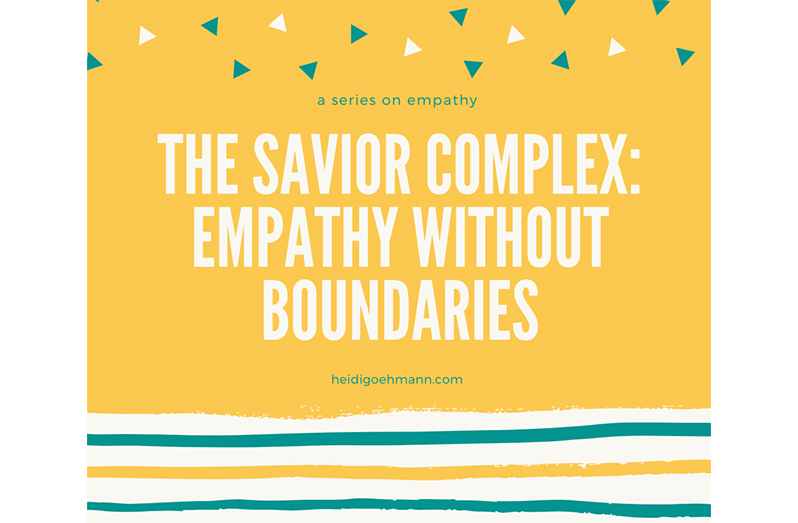HAVE you ever met someone who believes it’s their duty to “save” people? Or, perhaps that’s a personally trait you’ve noticed in yourself? It’s as if you make it your mission to always keep saving people from difficult circumstances in which they they may find themselves. Saviour’s complex, Messiah complex or white-knight complex are terms that are usually used to describe that type of behaviour. It’s not a medical diagnosis, but many experts described it as a state of mind of a way of thinking. Many persons genuinely do want to help others, including those with the saviour’s complex. However, with such a state of mind, a person may try to “overdo” their role in helping.
In some instances, people even crave the power they feel when helping others. They want to feel some form of superiority or even demand obedience of the persons they help. In more extreme cases, some persons deem themselves as an actual “saviour” or “messiah” as reflected in the Bible; hence, the names given to this mental delusion. Identifying a saviour’s complex can be difficult, especially in yourself. However, my best advice to people with it is to evaluate how helping others affects you. If you’ve noticed that you’re losing sleep, you have no leisure time, you don’t practise self-care, crave for power over other people, think you know what’s best for them, or even have issues with your sense of self-worth—you may have saviour’s complex.
 It’s important to note that the person you’re trying to help must always be willing to receive your help. You should not force people to be “saved,” nor should you try to put yourself or anyone else in danger by trying to help/save someone. I understand that there can be a thin line between wanting to help others and having a strong urge or need to save them from their demise. The truth is that you simply can’t help every single person that comes your way—the way they need help. You’re not a one-stop shop for everything they need. Those working in helping professions such as nurses, teachers and social workers should be cautious not to have such a thought process. It can do more harm than good.
It’s important to note that the person you’re trying to help must always be willing to receive your help. You should not force people to be “saved,” nor should you try to put yourself or anyone else in danger by trying to help/save someone. I understand that there can be a thin line between wanting to help others and having a strong urge or need to save them from their demise. The truth is that you simply can’t help every single person that comes your way—the way they need help. You’re not a one-stop shop for everything they need. Those working in helping professions such as nurses, teachers and social workers should be cautious not to have such a thought process. It can do more harm than good.
A saviour’s complex can create a dangerous level of codependency on both parts if you’re not careful. The person you’re trying to help may always depend on you for said help and you may always depend on them to feel “powerful” or some sense of worth by trying to help them. This behaviour can ultimately affect your personal relationships and your mental and physical health because, eventually, you become so consumed with taking care of others that you end up neglecting yourself and those around you. As we try to do better for others and our community at large, let’s ensure that our causes are rooted in facts, humility and compassion—not a delusion.




.png)









